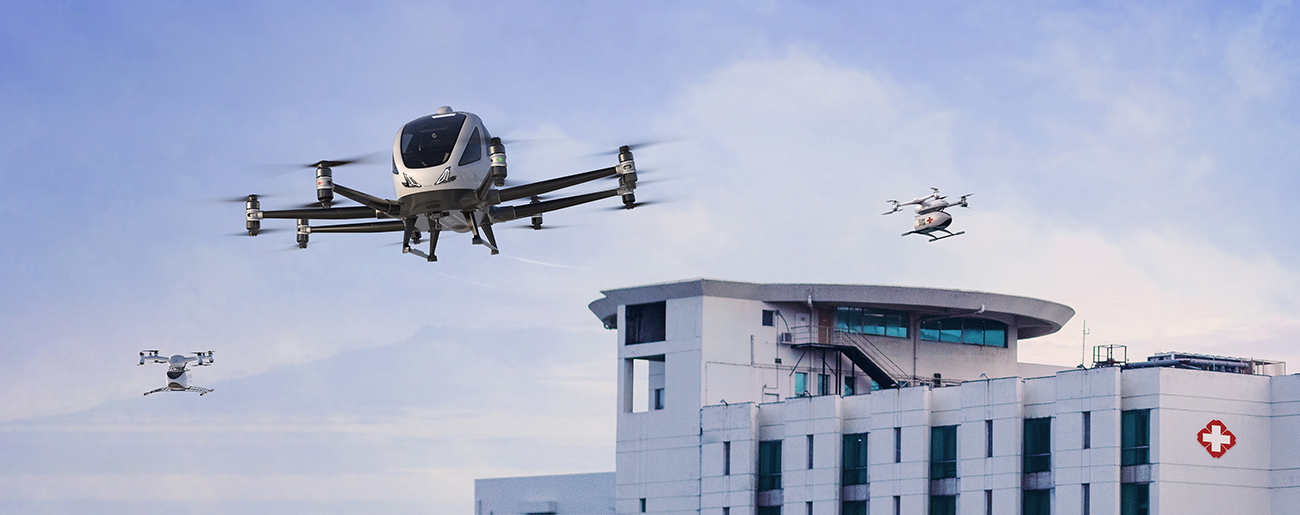Drones are emerging as a viable solution for urgent and reliable medical transport. SAFIR-Med, a recently-launched U-space large-scale innovation project will demonstrate how drones can be used to support Europe's healthcare system to accelerate the adoption of drones into the healthcare system in a safe, sustainable and socially acceptable way.
SAFIR-Med (Safe and Flexible Integration of Advanced U-space Services for medical Air Mobility) will leverage the expertise of 17 renowned project partners supported by 8 cross industry advisory board members to demonstrate advanced U-space services enabling the highest possible operational safety level. These include detect-and-avoid as a service, dynamic geofencing and air traffic prioritization rules. Five drone platforms (passenger eVTOL, hydrogen fuel cell VTOL, AED medical drone, X8 medical transport and tiltwing VTOL drone) will be combined with manned aviation in operational exercises validating technology in real urban environment. The demonstration results will be further virtually enhanced through large-scale simulations in order to evaluate the maximum airspace capacity of the given locations.
The demonstrations will take place in collaboration with healthcare actors like hospitals and medical spaces in the cities of Antwerp (BE), Aachen (DE), Heerlen (NL) and Maastricht (NL), leveraging the MAHHL trans-border region. The project results will then be further validated by simulating demonstrations in two additional locations in Europe, namely Athens, Greece and Prague, Czech Republic. Prior to the operational environment demonstrations, a de-risking exercise at the DronePort BVLOS test-facility (BE) will take place.

All lessons learnt from the project will be documented in a performance assessment and recommendations report, which will include refinements to the current U-space architecture principles, proposals for improved operational procedures and mechanisms for an effective interface with Air Traffic Control (ATC) and U-space service providers and a suggestion of a set of Urban Air Mobility indicators to complement the existing smart urban mobility indicators used by European cities.
The results of the SAFIR-Med project will enable European cities to get acquainted with their role in U-space management, to keep up with relevant regulatory changes, to include Urban Air Mobility in their urban development agendas and to start using the technology for the benefit of their citizens. The project is among several managed by the SESAR Joint Undertaking in an effort to deliver solutions for U-space, the European Commission's initiative on the safe and secure integration of drones in European airspace.
To achieve this, for the next two years SAFIR-Med will collaborate with representatives from the entire urban air mobility value chain as either project partners (ANSP/ATC, USSP, Operator, UAS Manufacturers, cities) or advisory board members (public authorities including cities, healthcare actors, technology & service providers).

The project has received recognition and funding from the European Union’s Horizon 2020 research and innovation programme under Grant Agreement No 101017701 under the topic “SESAR-VLD2-03-2020: U-space capabilities and services to enable Urban Air Mobility”.
